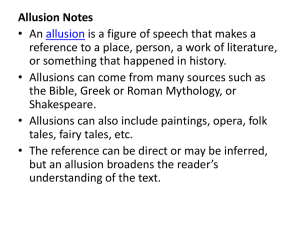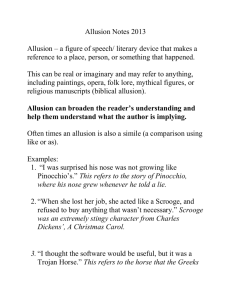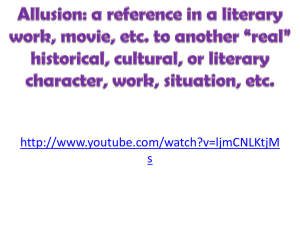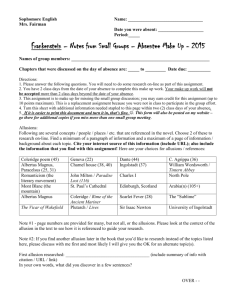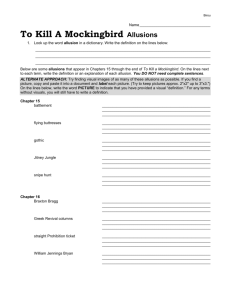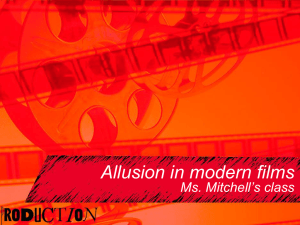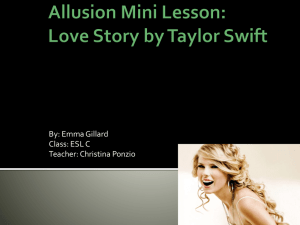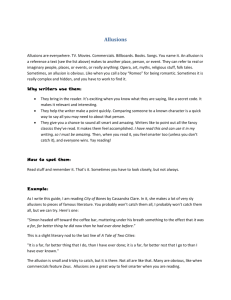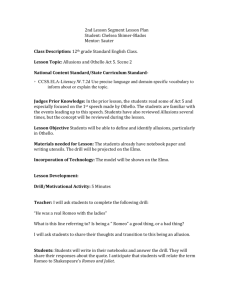Literary Term: Allusion
advertisement
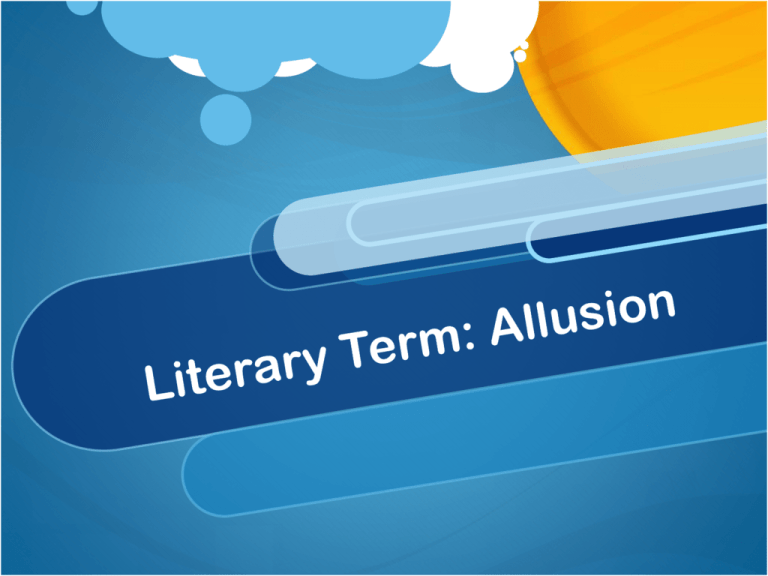
Definition An allusion is a reference to an artifact, be it a person, place, thing, event, or quote. It must be a well known and identified by a large group of people. It is often a proper noun. Allusion Definition….cont’ This reference is probably explicit, but its meaning can be understood only if the person, place, or event is well known by all or known by the reader. An allusion can help the reader develop their understanding of the theme of the book, or bring up a new theme based on that small reference. Purpose We, as readers, need to know what allusions are so we can identify them in our reading. We need to be able to recognize allusions in the books we read because they are usually important in our overall understanding of the book. Purpose.....cont’ For example, if the name of a character was an allusion to a different character in another literary work, that similarity could reveal something about the character that we wouldn’t have known if we hadn’t found the allusion. Allusions also: • increase the audience’s bond with the author, as the author and the audience become/are part of a select group who understand the allusion. Allusions Commonly Made to: the Bible nursery rhymes Myths famous fictional or historical characters literature Allusions Have the Following Effects: They stir up feelings in the reader by just taking up a minimal amount of space. In other words, they do the work so the author doesn’t have to. They train the audience--the audience must figure out and understand the original source. Allusion Example “I was surprised his nose was not growing like Pinocchio’s.” This refers to the story of Pinocchio, where his nose grew whenever he told a lie. Taylor Swift “Love Song” Allusion That you were Romeo, you were throwing pebbles And my daddy said stay away from Juliet And I was crying on the staircase Begging you please don't go. Explanation Romeo was a character in Shakespeare’s play, Romeo and Juliet, and was very romantic in expressing his love for Juliet. Allusion Example 'Christy didn't like to spend money. She was no Scrooge, but she seldom purchased anything except the bare necessities'. Explanation This is a popular allusion to Scrooge, the famous pennypinching character of Charles Dickens' classic A Christmas Carol. Find the Allusion “The day was young and I was looking forward to the afternoon. I was supposed to go out on a date, but my plans were changed. All my siblings were gone, but I had been in the house slaving like Cinderella, scrubbing the floors on my hands and knees, washing clothes and dishes and making everyone's beds.” Questions?
